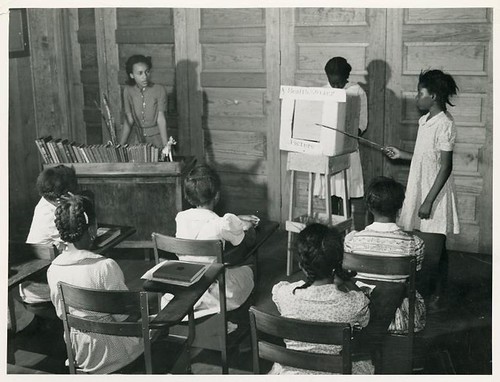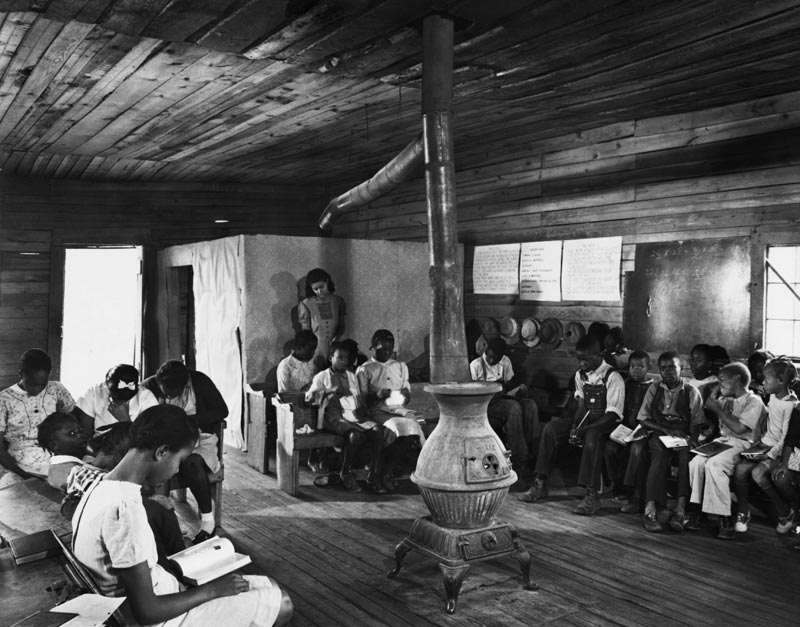"Who powered the passage of the charter school amendment in Georgia? African-Americans who have been chronically denied good public schools…." By Douglas A. Blackmon -- One of the most striking results of the vote on Amendment 1, which was approved by Georgia voters on Tuesday and creates an independent commission to authorize public charter schools in the state, is the absolutely extraordinary level of support received from African-American voters.
In the 20 Georgia counties where African-Americans make up half or more of the population, the amendment was approved by 61% of all voters and in 14 of those 20 counties. (In two of the other six counties, the amendment still got 49% of the vote; in the other four, support ranged from 42-44%). In the 13 counties where more than half of Georgia’s three million black citizens live, the margin of support was even higher: 62% approval.

The bottom line: Georgia’s black counties overwhelmingly desire dramatic new alternatives to the conventional school systems that have failed them for more than a century.
That level of support flatly contradicts one of the flimsiest canards used to criticize Amendment 1—and charter schools in general. That is: the idea that somehow charter schools end up hurting minority or poorer students while disproportionately helping white and middle class children. The actual performance of charter schools in Georgia has always defied such claims. African-American students and all children living in urban areas with failed conventional public schools, like Atlanta, have benefited far more from charters than any other groups.
That reality of the vote is even more remarkable when plotted across a map of Georgia. Amendment 1 was overwhelming approved in populous areas like Atlanta, Savannah and Macon—where a new generation of residents from all social and ethnic backgrounds want an eclectic, diverse, “city” life but where the archaic system of local school board control of public education has been a sustained failure for decades. The amendment also received huge support in places like Cherokee County, where the local school board in recent years has been perhaps the most hostile to all charter schools—and any kind of meaningful school reform—of any location in Georgia. The monopoly so long held by chronically failing institutions like those is what Amendment 1 will now challenge.

The support of Amendment 1 among African-Americans is also notable against the backdrop of the Georgia Supreme Court decision in May 2011 that struck down as unconstitutional a previous version of the state charter commission. That ruling on a lawsuit organized by school boards that oppose all charter schools led directly to the campaign for Amendment 1. In the 2011 ruling, the Supreme Court ignored some substantive issues around state funding that in truth needed judicial scrutiny, and instead struck down the old commission using a cruelly naïve logic that would have been comical if it had not been so nauseatingly ironic. The court reached all the way back to Georgia’s defunct constitution of 1877–a white supremacist document passed expressly to end the brief period of true citizenship enjoyed by formerly enslaved African-Americans after the Civil War–and cited as the basis of their ruling against the charter school commission the very constitutional article that first mandated racially segregated schools in Georgia.

How richly appropriate then, that African-American voters in Georgia used the ballot box to renounce the state Supreme Court’s absurdist logic. A total of more than 805,000 “yes” votes (out of a total of 2.1 million statewide in favor of the amendment) were cast in the counties with the largest number of black voters. That includes DeKalb (54% African-American), where the amendment passed with 64% of the vote; and Fulton (43% African-American), where it was approved by 66%.

And where did Amendment 1 get the absolute highest level of support: in 66% black Clayton County, the poster child for abominable school boards, where the system lost its accreditation as a result of staggering dereliction by the elected board. African-American families in Clayton have been in open revolt—ousting some school officials at the polls, moving to nearby jurisdictions with better schools and mounting immense pressure for improvements.
Voters in Clayton gave the charter school amendment a stunning 71% approval. That says it all. (source: PBS)


No comments:
Post a Comment